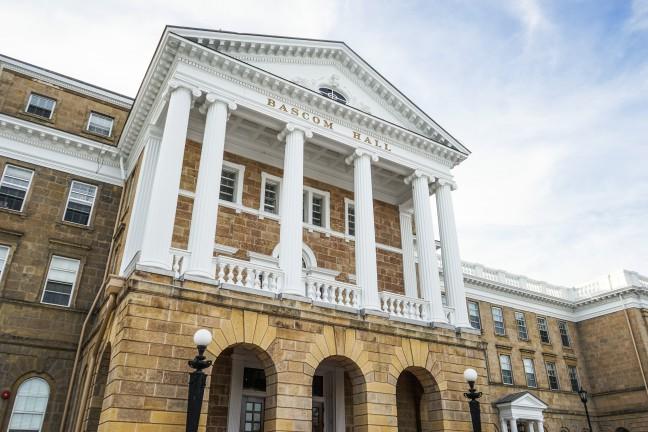While the fall semester saw a wave of new COVID-19 cases as a result of the delta variant, we now see global concern amid discovery of the new Omicron variant, of which little is known.
Since March 2020, UW students have faced uncertainty, fear, frustration and anxiety as we’ve grappled with rapidly changing guidance and restrictions — most of which have been left to the public to decipher. Still, while past semesters saw pass/fail options and increased accommodations, a desire to return to normal has become a push to return to the often-grueling academic climate of the pre-pandemic past.
Though students are undoubtedly anxious to toss their masks away and forget about COVID-19 scares, the understanding and empathy extended by professors and the UW administration over the past year and a half must remain.
But this has not consistently been the case. Instead, UW leaders have been less than accommodating to both instructors and students who prefer remote or hybrid learning, with both groups facing difficulties during the transition to in-person instruction.
A lack of alternative support from the university is problematic as in-person instruction poses difficulties to students who now find themselves facing new health problems, as well as the existing population of students with disabilities or who are immunocompromised. This is equally frustrating for students who have suffered COVID-19 infections and continue to experience symptoms, or what has now been termed long COVID. For such students, online classes were a reprieve, which the overarching support for and rush to return to in-person instruction ignores.
As uncertainty persists due to Omicron dominating headlines around the world, now is not the time for the flexibility and accommodations we saw during the pandemic to disappear for the most vulnerable in the UW community. Rather, this is a pivotal moment for UW to show it has learned from the successes seen in these areas throughout the pandemic and apply them appropriately to best ensure students’ academic, mental and physical wellness as we wait to learn more about Omicron.
Beyond classroom delivery, UW as of now has only mandated vaccines for federal contractors, including student employees, meaning there is no universal mandate in place for students to combat waves of cases seen amid delta and new or unknown variants. While 94.9% of students are currently vaccinated, the remaining unvaccinated population, or potentially individuals who choose not to receive a booster, will ultimately decide the fate of the campus and broader Madison community if the COVID-19 virus mutates.
The mutual responsibility we have as students to protect our fellow classmates and those in the community cannot be understated. If UW wishes to be a leader in the state’s capital and Wisconsin at large, it is necessary that remaining unvaccinated campus members use the education at their fingertips to make the right decision to protect vulnerable communities and ultimately help prevent the senseless loss of life caused by COVID-19.
Without a vaccine mandate at Dane County or UW, we have instead resorted to indefinite mask mandates. While mainly inconvenient, these policies detract from the larger point that widespread vaccination will prevent future COVID-19 waves and put an end to the pandemic — not simply universal mask-wearing. This ultimately begs the question of what a true return to normalcy looks like for vaccinated individuals who feel they have done their part.
A lack of support from the university for those struggling to return to “normal” coupled with a largely vaccinated population of students yearning to return to pre-pandemic life means administrators must truly weigh lessons learned from the past year and a half.
A simple transcript marker of COVID-19 disruption for only a couple of semesters is the bare minimum when the pandemic’s toll is immeasurable and far from over. Students deserve more institutionalized support to navigate the pass/fail option — which proved to be a “disconnect” in the grading process highlighted by many across the UW community last semester.
As stated earlier, accommodations and flexibility in course delivery should be strengthened to support students through the difficulties of the pandemic. And looking to the future, the university should build the infrastructure for such accommodations now so that some of these successful academic arrangements can endure past the pandemic’s peak. UW has made some positive steps in the right direction, such as the permanent extension of the deadline to drop a class.
In addition to greater support for flexible academic measures that have proved fruitful throughout the course of the pandemic, the university cannot neglect the ever-growing need for better mental health services on campus. Namely, administrator’s efforts must target UHS’s overwhelmed mental health services and develop standardized remote or hybrid alternatives to courses for students suffering COVID-19 infections or symptoms.
Studies have already captured the dire impacts of COVID-19 on college students’ mental wellbeing. Given the need for more comprehensive and accessible mental health services was pervasive long before COVID-19 hit campus, UW has an obligation now more than ever to improve these services.
Administrators’ responsibility to address the impacts of the pandemic must go beyond basic health necessities and classroom instruction as well. As the financial, personal and logistical challenges of navigating the pandemic persist for college students across the nation, UW must listen to students’ ongoing concerns.
This means the university has to address student concerns beyond the biomedical — while easy access to vaccines and boosters is an excellent start, acknowledgment of the pain and suffering students have experienced through systemic changes is the only way UW can ensure the campus emerges from COVID-19 with a brighter “new normal.”
The Badger Herald Editorial Board serves to represent the voice of the editorial department, distinct from the newsroom and does not necessarily reflect the views of each staff member.


